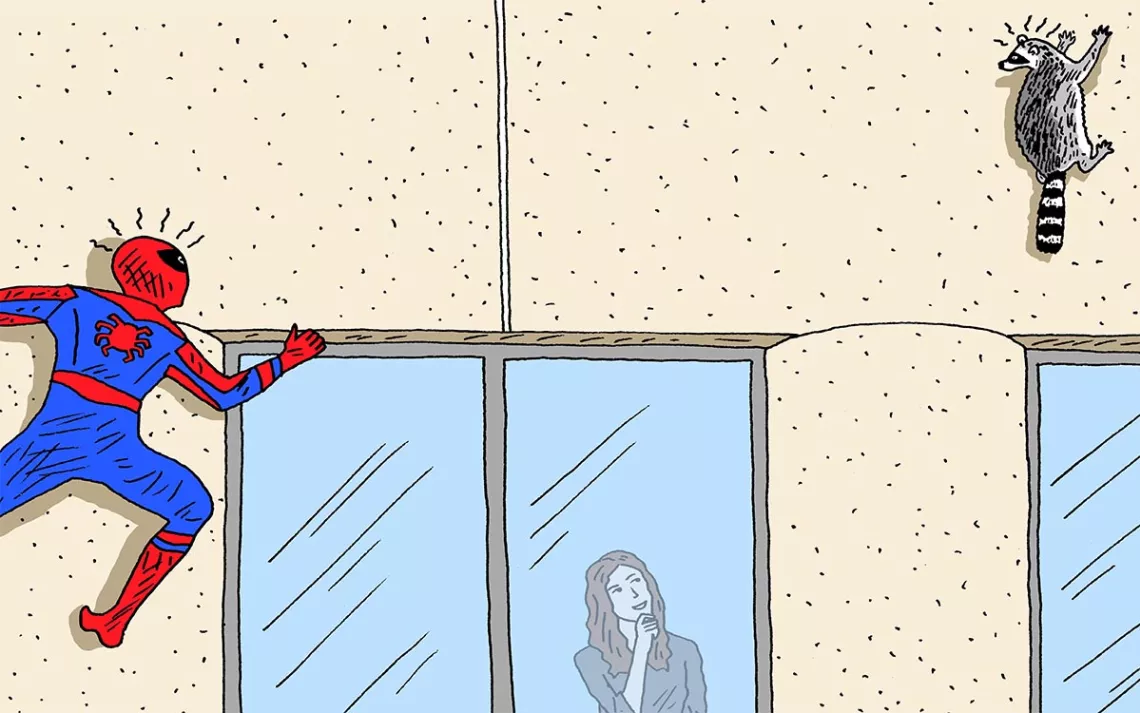ICYMI: Free-Soloing Raccoon, Trump’s Toll, Refrigerating the Arctic, & More
A weekly roundup for busy people

Illustration by Peter Arkle
The Internet cheers a raccoon that safely scales a 25-story building in St. Paul, Minnesota, and the removal of the plastic ring sealing the beak of a stork near New Delhi, India.
A woman walking her dog in Florida is killed and partially consumed by an alligator.
The EPA’s own health-risk assessments indicate that the Trump administration’s rollbacks of protections for clean air and water will cost 80,000 lives per decade.
An Interior Department official has at least six meetings with mining industry officials before pulling the plug on a study of the health effects of mountaintop-removal mining on surrounding communities.
EPA administrator Scott Pruitt assigns a top aide to contact conservative political organizations that had backed Pruitt in the past to see if they will give his wife a job.
A draft report from the U.N.’s Intergovernmental Panel on Climate Change says that if emissions of greenhouse gases continue at their current rate, human-caused warming will exceed 1.5 degrees Celsius over preindustrial times by 2040.
The Antarctic Ice Sheet is melting nearly three times faster than in 2012. Since 1992, it has lost 3 trillion tons of ice.
Pope Francis tells the world’s top oil-company executives to stop destroying civilization.
The oil industry is buying thousands of $10,000 refrigeration devices called “thermosyphons” to keep the tundra frozen so that oil production can continue.
The Democratic National Committee will no longer accept contributions from fossil fuel companies.
Thirty-two years after the Chernobyl nuclear meltdown, milk in some parts of Ukraine still has five times more radiation than is safe to consume.
Wolf OR-54 visits California’s northern Sierra Nevada not far from Lake Tahoe, the farthest south in the state a wolf has been known to travel in a hundred years.
The U.S. Fish and Wildlife Service confirms that it will likely try to strip the gray wolf of endangered-species protection.
Numbers of spawning wild Atlantic salmon drop for the second year. In the United States, only 1,041 salmon returned to all rivers in 2017.
In the last dozen years, four of the 13 oldest African baobab trees—some more than 2,000 years old—have died. Another five are dying.
As e-commerce sales rise, cardboard recycling declines.
U.S. birth rates are dropping the most in counties where home prices are increasing the most.
 The Magazine of The Sierra Club
The Magazine of The Sierra Club



